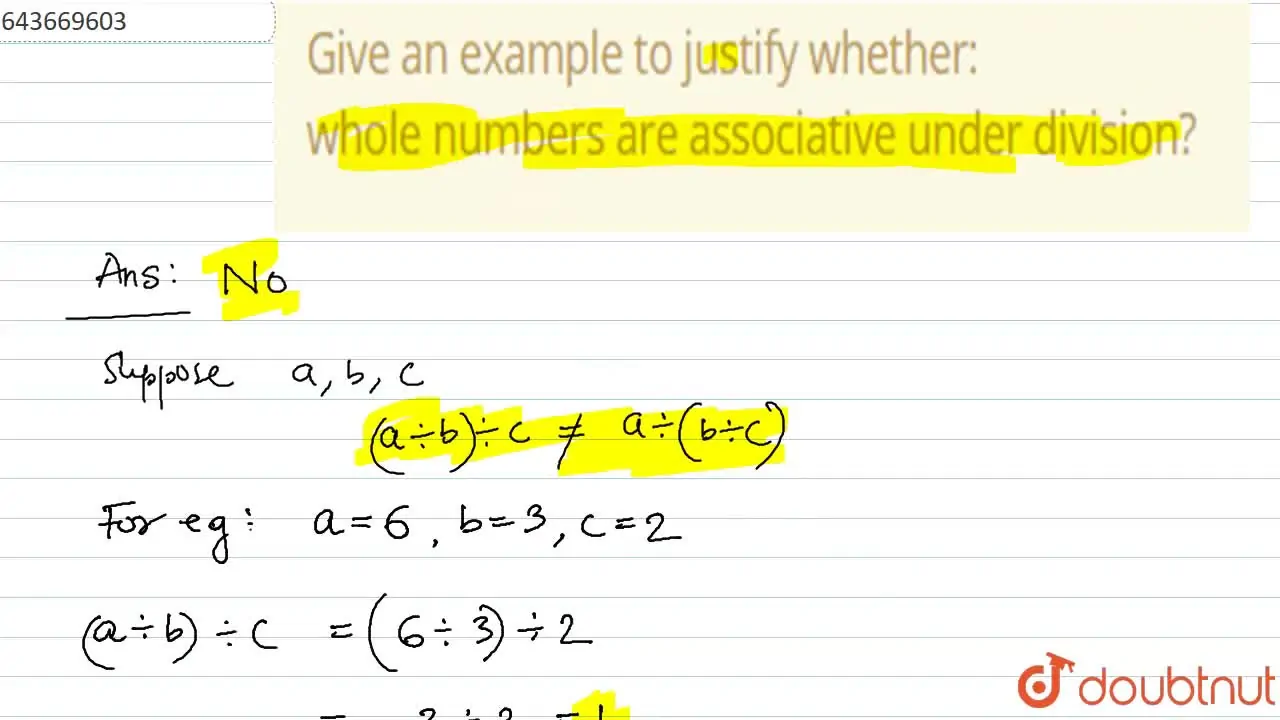Give an example to justify whether:
whole numbers are associative under division?
The correct Answer is:1; Multiplicative identity
Step by step video, text & image solution for Give an example to justify whether: whole numbers are associative under division? by Maths experts to help you in doubts & scoring excellent marks in Class 6 exams.
Similar Questions
Give an example to justify whether:
whole numbers are associative under subtraction?View SolutionGive an example to justify whether:
whole numbers are not commutative under division?View SolutionGive an example to justify whether:
whole numbers are commutative under subraction?View SolutionGive an example to show that the whole numbers are commutative under:
additionView SolutionGive an example to show that the whole numbers are commutative under:
multiplicationView SolutionGive three examples each to show that the whole numbers are:
not commutative under division.View SolutionWrite two examples to show that:
whole numbers are not closed under division.View SolutionGive three examples each to show that the whole numbers are not closed under:
divisionView SolutionGive three examples each to show that the whole numbers are:
not commutative under subtraction.View SolutionWrite two examples to show that:
whole numbers are closed under addition.View Solution


